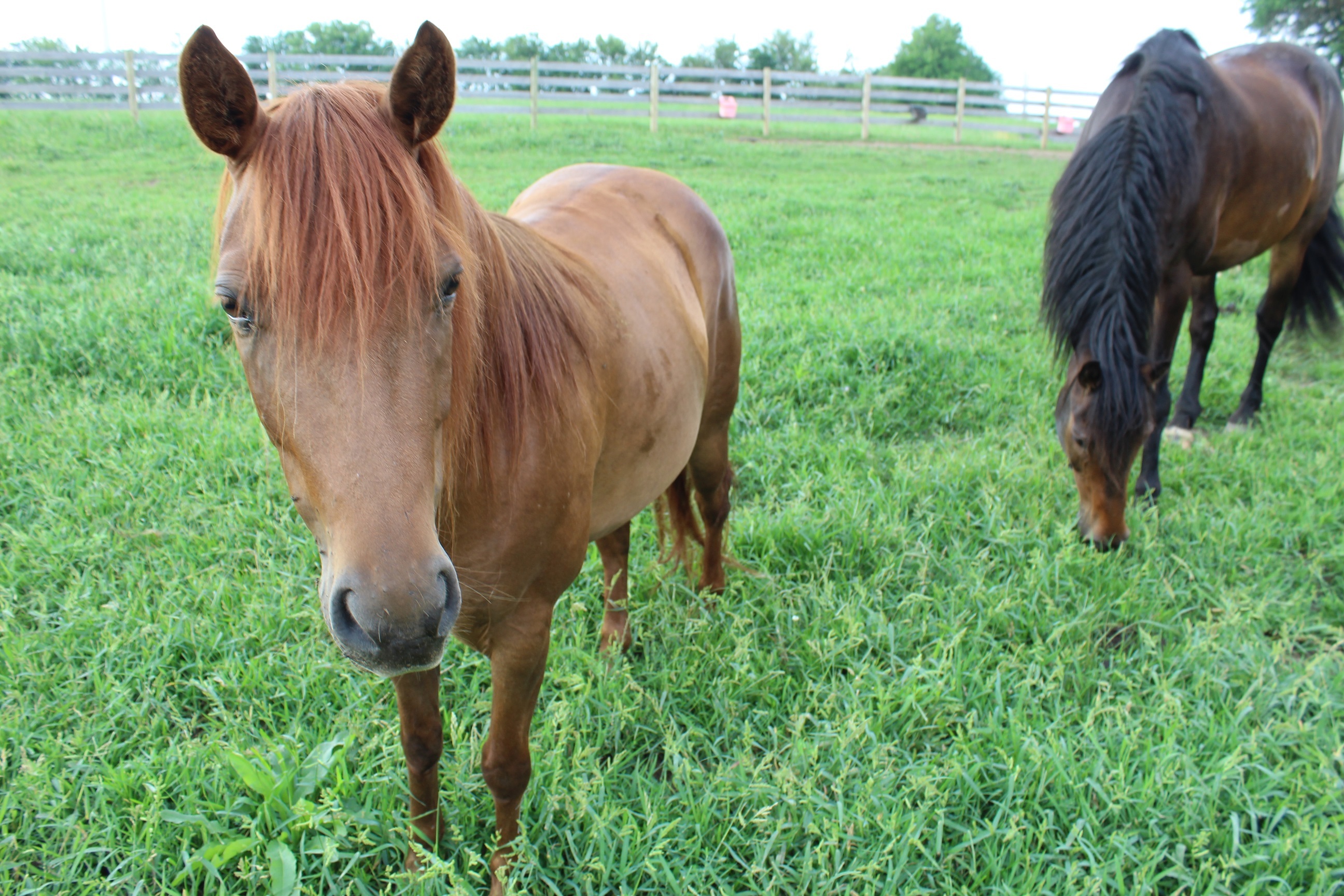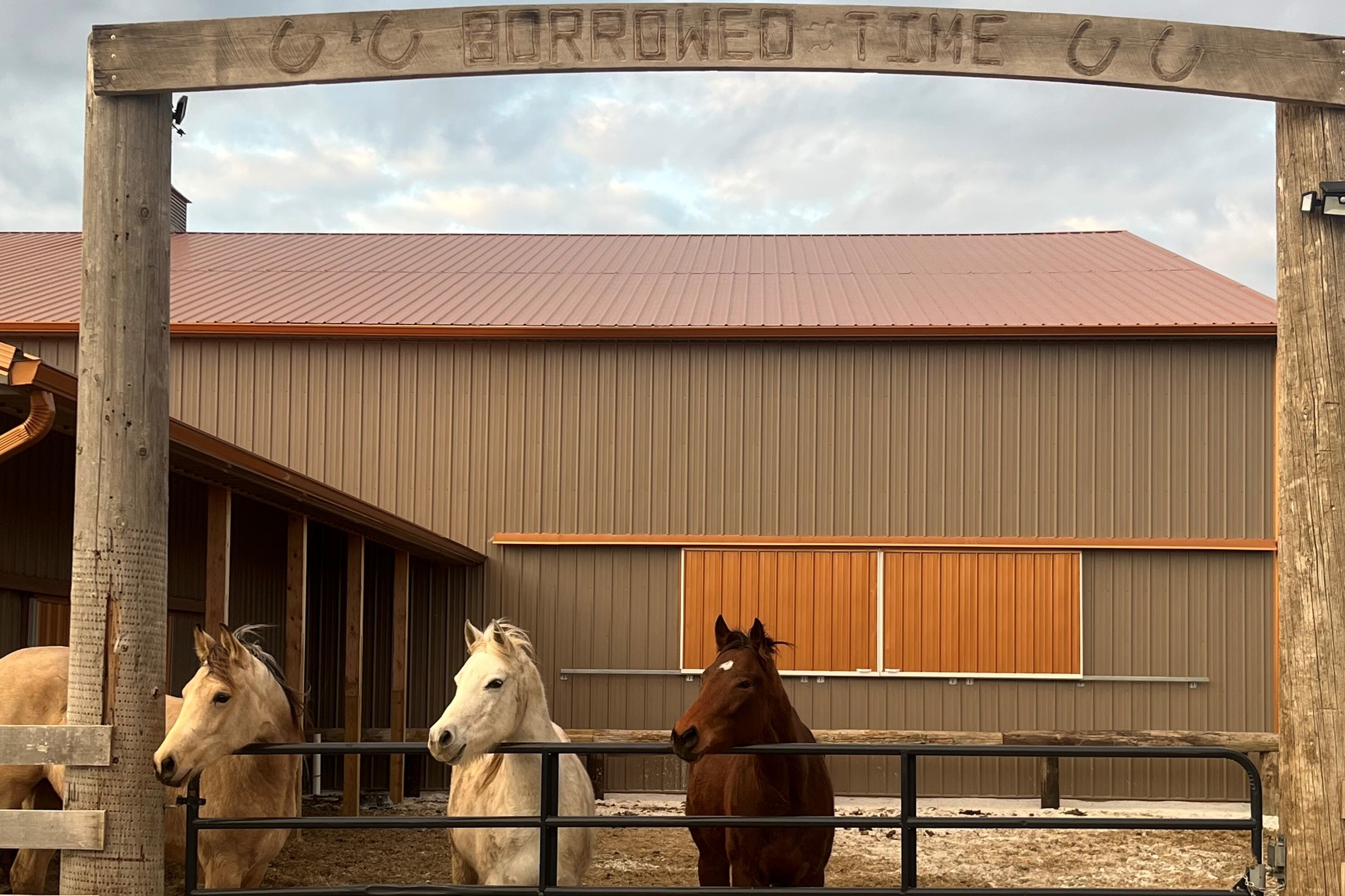Growing up with horses and a passion for helping others, Darcy Lash, a hospitalist at IU Health Arnett Hospital, knew she wanted to combine these interests to positively impact the youth community.
“I’ve always had horses when I could. They’ve always been a part of my daily life,” she says.
Lash earned a master’s degree in industrial chemistry and worked in the industrial field for 12 years. During this time, she rescued 13 horses and opened a boarding barn where she could provide the horses care and nutrition before adopting them out to homes.
After selling the boarding barn, Lash completed her medical degree. She graduated medical school in 2015 and began her residency in Terre Haute, Indiana. While there, she became aware of a concern within the youth population.
“There was a lot of teenage pregnancy and drugs and alcohol. I thought if I could start something, I could keep the youth community out of trouble and use that opportunity to educate them. Maybe they would be interested in the horses and provided a goal or path that is different from what they’re used to,” she shares.
During her residency, one of her attending physicians handed her a newspaper article about equine assisted activity and the benefits of equine therapy.
Inspired by her medical background and prior knowledge of horses, Lash sought to develop a community equine facility that provides equine therapy to assist the at-risk youth population.

In 2020, Lash built Borrowed Time, a non-for-profit 501(c)(3) equine facility in Benton County, Indiana. The facility focuses on providing guidance and working with the youth population to prevent the use of drugs and alcohol. Borrowed Time welcomes everyone to connect with horses and nature in a therapeutic environment.
Lash established Borrowed Time all by herself right as the pandemic emerged, she says.
“I started this project right when COVID-19 broke out. Everything just stopped, from grant writing to funding. I just built it myself from the ground up.”
She recruited friends and people living in the community who she thought could help advance the project, including an Arnett physician who made a generous financial contribution. As of today, the facility has 10 horses.
“Horses are expensive. Unless your family has them, you’re not exposed to this whole other side of life that kids don’t normally get to be part of.”

Working with horses helps a person become self-aware and better understand their emotions and actions in a natural environment, rather than in a standard therapy group.
“You don’t concentrate on the therapy, like when you’re one on one in a room. Silent pauses are most of the horse interaction because they’re nonverbal. You watch their body language and they’re more concentrated on the horse until something changes. If the horse doesn’t interact appropriately, then it switches to them. It’s not a constant one-on-one, and the horse serves as a medium for self-reflection. There’s something therapeutic about a 1,000-pound animal being nice to you,” she says.
The success of the program confirms Lash’s feelings that it’s working well so far. She sees a variety of ages, mainly 14-16 years old teenage girls, visiting the facility. Some also work there.
When asked how Lash connects her medical knowledge with the project, she shares that Borrowed Time hosts educational sessions that talk about nutrition, substance abuse and anxiety—all of which she uses her medical background for.
Every service provided at Borrowed Time relates to the horses, Lash shares.
“The community has a local retirement group home for people that have special needs and are high-functioning, but can’t live on their own. They don’t have much outdoor activity, so they come by the facility once a month. I planted a garden with them, so when they visit, they help with that. Some like horses and some like being outside.”
Additionally, the facility offers kids camps for ages 8-14 once a month in the summer. The activities involve the horses and outdoor activities, as well as going off-site to local fairs, Fair Oak Farms and Willow Slough to see the wild buffalos, or participating in craft projects that are reviewed by a professional artist and friend of Lash.

The facility also hosts a presentation with Camp Mariposa, a mentor program for children in families that are recovering from substance abuse. In October, the facility has scheduled a session to educate students at the Purdue University College of Veterinary Medicine who are majoring in equine or small animal studies and want more exposure to horses before completing their equine rotations.
As Borrowed Time continues to grow, Lash shares her hope to include psychotherapy services, start Alcoholics Anonymous or Narcotics Anonymous meetings and reach more emerging adults to reinforce education on addiction, anxiety and other emotional issues that can potentially lead to substance use.
“My personal theory says anxiety and the lack of knowledge regarding the impact of addiction can lead to the initiation of substance use. I think, if they can’t control the anxiety or you don’t learn how to deal with it, kids and young adults will look for an answer, and the answer isn’t always a healthy one.”

